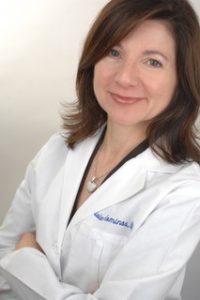American Board of Integrative Medicine® (ABOIM®) Diplomate Vivian A. Kominos, MD, Explains Integrative Cardiology
 In simple terms, integrative cardiology is good cardiology. It applies the tenets of integrative medicine to pick the most appropriate treatments for a person’s individual health benefits and disease risks. It employs conventional therapies such as percutaneous coronary interventions and pharmacotherapy when necessary, while including the less conventional treatments such as mind-body medicine, acupuncture, nutrition, exercise and spirituality. It looks for less costly and less risky treatments where appropriate and emphasizes healing and prevention.
In simple terms, integrative cardiology is good cardiology. It applies the tenets of integrative medicine to pick the most appropriate treatments for a person’s individual health benefits and disease risks. It employs conventional therapies such as percutaneous coronary interventions and pharmacotherapy when necessary, while including the less conventional treatments such as mind-body medicine, acupuncture, nutrition, exercise and spirituality. It looks for less costly and less risky treatments where appropriate and emphasizes healing and prevention.
Conventional cardiology is wonderful at treating acute cardiac problems such as myocardial infarctions or heart failure. But it falls short when it comes to preventing and healing heart disease. According to the CDC, approximately 80% of premature heart attacks and strokes can be prevented with appropriate lifestyle changes. Although the American Heart Association and the American College of Cardiology have many well researched and evidence proven lifestyle guidelines in place, most cardiologists have little, if any, training in this modality of medicine. As an example, cardiologists agree that nutrition is one of the backbones of prevention and treatment for atherosclerosis. Yet in a survey of 930 cardiologists who were asked about nutrition training:
- 90% received little or no training during fellowship
- 59% had little or none during residency
- One third little or none during medical school
- Only 8% described themselves as experts in nutrition
- But most believed that they need to provide recommendations to their patients.
AM J Med. 201; 130 (11): 1298-1305
This survey indicates that most cardiologist feel ill-equipped to provide adequate care for their patients. It is therefore time for cardiology, and for all medicine, to delve into the root causes of disease rather than treating the downstream effects of sedentary lifestyle, high stress, poor nutrition, lack of safe environments and inadequate sleep. Integrative medicine training provides the tools that prevent heart disease, mitigate cardiovascular risk factors, and allow for healing from heart disease.
Integrative medicine understands the innate healing power of the human body and spirit. Studies of heart disease prove that it is never too late to heal. Physical activity, for instance, is a recommendation that can be given to almost anyone. In a worldwide study of coronary artery disease that looked at over 15,000 participants who were followed for 3.7 years, walking just 10 minutes a day was associated with a 30% reduction in all-cause mortality in those who were sickest (JACC. 2017;70(14):1689-1700). Exercise has far reaching benefits that exceed those from statins and aspirin, yet most cardiologists readily offer the latter and often forget to talk to the patient about physical activity.
Cardiology is therefore ripe for integrative medicine. The first Chinese medical textbook was written approximately 5000 years ago. A translation reads: superior doctors prevent disease; mediocre doctors treat the disease before evident; inferior doctors treat the full blown disease. Integrative medicine fellowships are now educating physicians from all primary care and specialty areas and can provide physicians with the tools they need to become superior healers.
— Dr. Vivian A. Kominos has practiced cardiology for 30 years and has concentrated on integrative medicine and integrative cardiology for the past 12. She is Clinical Assistant Professor of Medicine at the Dr. Andrew Weil Center for Integrative Medicine and is a practicing cardiologist in West Long Branch, New Jersey.










